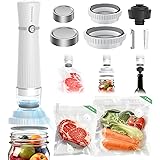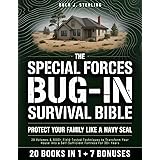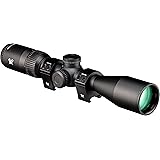Imagine a scenario where the familiar sirens of an ambulance fall silent, the bustling emergency room is miles away or simply non-existent, and immediate medical help becomes a distant memory. In such an austere environment, a simple bacterial infection, easily treated today, could quickly escalate into a life-threatening crisis. This sobering thought is why individuals committed to self-reliance and disaster readiness often turn their attention to comprehensive medical preparedness, including a carefully curated supply of vital medications.
The accompanying video, presented by Dr. Joe Alton, known as Doctor Bones from DoomandBloom.net, offers a crucial introduction to the world of survival medicine antibiotics. He highlights the absolute necessity of understanding and stocking these critical drugs for times when modern medical infrastructure is unavailable. This post will delve deeper into the insights shared by Dr. Alton, expanding on the nuances of building an effective medical storage for emergency situations, particularly concerning the judicious use of antibiotics.
Understanding the Critical Need for Survival Medicine Antibiotics
In a prolonged emergency or disaster, common ailments can become deadly without access to medical professionals. Bacterial infections, from respiratory illnesses to wound infections, represent a significant threat. Having a supply of survival medicine antibiotics in your emergency kit is not just advisable; it can be the difference between recovery and severe decline.
Preparing for medical issues in a disaster, as Dr. Alton emphasizes, involves more than just gathering supplies. It demands a level of knowledge typically reserved for healthcare professionals. When the ambulance isn’t on its way, you become the primary caregiver, making informed decisions about treatment crucial for survival.
Why Antibiotics Are Indispensable in Austere Environments
Antibiotics are specialized medications designed to fight bacterial infections. Without them, even minor cuts or scrapes can become infected, potentially leading to sepsis. Respiratory tract infections, urinary tract infections, and digestive issues caused by bacteria are common and can quickly incapacitate someone in a survival scenario, jeopardizing their ability to contribute or even care for themselves.
Therefore, a well-stocked medical kit for austere environments must include a selection of antibiotics. These drugs offer a vital tool for combating a wide range of bacterial threats, preserving health and functionality when professional medical care is out of reach.
Navigating the World of Fish Antibiotics: Criteria and Considerations
One of the most discussed and often misunderstood aspects of acquiring antibiotics for medical storage involves veterinary medicines, particularly those marketed for fish. Dr. Alton explicitly addresses the criteria for considering these ‘fish antibiotics’ as viable options for human use in a survival context. It is essential to approach this topic with extreme caution and a thorough understanding of the guidelines.
Strict Criteria for Veterinary Equivalents
Not all veterinary drugs are created equal, and certainly, not all are suitable for human consideration, even in emergencies. Dr. Alton outlines specific, non-negotiable criteria:
- Single Ingredient: The medication must contain only the antibiotic itself. You must avoid any veterinary drugs that include additional ingredients designed to enhance an animal’s scales, feathers, or fur, as these could be harmful to humans.
- Human Dosages: The veterinary drug should be produced only in dosages that mirror human prescriptions. For example, Fish Mox is available in 250 mg or 500 mg, which are standard human dosages for Amoxicillin.
- Identical Pill/Tablet Composition: The physical pill or tablet must be verified as identical to a human-grade counterpart produced by an accredited laboratory. Dr. Alton specifically mentions Fish Mox Forte, which is identical to 500 mg Amoxicillin manufactured by Teva Pharmaceuticals for humans. This ensures consistency in manufacturing and active ingredient purity.
Failing to meet any of these criteria renders a veterinary product unsuitable for emergency human use. The risk of contamination, incorrect dosage, or harmful additives is simply too great.
Common Fish Antibiotics and Their Human Equivalents
Several fish antibiotics are frequently discussed in preparedness circles due to their adherence to the above criteria and their commonality in human medicine:
- Fish Mox (Amoxicillin): A penicillin-class antibiotic, effective against a broad range of bacterial infections, including those affecting the respiratory tract, skin, and urinary tract.
- Fish Zole (Metronidazole): Useful for anaerobic bacterial infections and certain parasitic infections. The video specifically warns against mixing Metronidazole with alcohol, which can induce severe vomiting due to a disulfiram-like reaction.
- Fish Flex Forte (Cephalexin): A cephalosporin antibiotic, often used for skin infections, bone infections, and certain respiratory or urinary tract infections.
- Fish Cillin (Ampicillin): Another penicillin-class antibiotic, similar to Amoxicillin but with some differences in absorption and spectrum.
- Fish Doxy (Doxycycline): A tetracycline antibiotic, effective against a wide range of bacteria, including atypical pathogens, and also useful in treating malaria prevention or treatment.
It’s vital to remember that while these specific drugs may meet the stated criteria, the decision to use them in a survival setting should only be made in a genuine life-or-death situation where no other options exist. This information serves as preparedness knowledge, not a guide for self-medication under normal circumstances.
Crucial Considerations for Antibiotic Use and Medication Safety
Beyond simply acquiring antibiotics, understanding their appropriate and safe use is paramount. Misusing antibiotics can lead to ineffective treatment, harmful side effects, or even accelerate antibiotic resistance. Dr. Alton highlights several critical factors that must be considered before administering any medication.
Allergies and Hypersensitivities
One of the most immediate concerns is drug allergies. An allergic reaction to an antibiotic can range from a mild rash to severe anaphylaxis, a life-threatening condition. Always ascertain any known allergies before giving medication. If a person has a history of penicillin allergy, for instance, a different class of antibiotic should be chosen. In a survival situation, knowing this history is critical, and lacking it significantly increases risk.
Pregnancy and Lactation Warnings
Many medications, including several antibiotics, are not recommended for pregnant or breastfeeding individuals. This is often due to lab studies showing potential birth defects in animal fetuses, or simply because no human studies have been performed. Imagine if you administered an antibiotic without this knowledge, potentially harming a developing fetus. Always consult a reference guide to check contraindications during pregnancy and lactation. When alternatives are limited, this becomes an agonizing but necessary consideration.
Dangerous Drug Interactions
The human body is a complex system, and introducing multiple drugs can sometimes lead to dangerous interactions. Dr. Alton’s example of Metronidazole (Fish Zole) and alcohol is a stark reminder. This combination causes severe nausea and vomiting. Other interactions might weaken or strengthen the effects of one or both drugs, leading to undertreatment or overdose. Knowing these interactions requires diligent research and a reliable medical reference. Hypothetically, if a person takes a blood thinner and then a particular antibiotic that also thins blood, the risk of severe bleeding drastically increases.
Potential Side Effects
All medications carry the risk of side effects. Common antibiotic side effects include nausea, diarrhea, stomach upset, and yeast infections. While often not life-threatening, these can be debilitating in a survival scenario. Understanding the common side effects of each antibiotic you store helps you anticipate and manage them, or even choose an alternative if the side effects are too severe for the patient’s current condition.
The Importance of Proper Diagnosis (Even in Austere Settings)
Antibiotics only work against bacterial infections. They are completely ineffective against viral infections (like the common cold or flu), fungal infections, or parasitic infections (though some, like Metronidazole, have anti-parasitic properties). Administering an antibiotic for a viral infection not only wastes precious resources but can also contribute to antibiotic resistance and expose the individual to unnecessary side effects. While a definitive diagnosis is difficult in austere environments, understanding common symptoms associated with bacterial infections versus other pathogens is a crucial caregiver skill.
Empowering Yourself with Knowledge: The Caregiver’s Essential Role
Dr. Alton rightfully states that you cannot be expected to know everything about every medication. However, as a potential caregiver in a survival setting, you absolutely must know a significant amount about the drugs you intend to use. This isn’t just about reading a label; it’s about understanding the drug’s mechanism, its spectrum of activity, appropriate dosages, and all potential risks.
Indispensable Reference Materials
The Physician’s Desk Reference (PDR) is a comprehensive resource that provides detailed information on prescription drugs. While a physical copy can be bulky, it is an invaluable tool for any survival medicine cabinet. Other resources include medical textbooks, online databases (if accessible), and specialized survival medicine handbooks like ‘The Survival Medicine Handbook’ authored by Dr. Alton and his wife Amy Alton, a nurse practitioner. This acclaimed Amazon best-seller provides extensive information specifically tailored for medical preparedness in austere environments, giving you a head start on keeping your family safe in times of trouble.
Spending time to absorb this information beforehand is crucial. You won’t have the luxury of leisurely research during an emergency. Imagine trying to learn how to suture a wound or diagnose pneumonia while under immense stress and with limited light. Preparation is key to effective care.
Antibiotic Resistance: A Growing Concern
The overuse and misuse of antibiotics contribute significantly to antibiotic resistance, a global health crisis. In a survival situation, the last thing you want is for your limited supply of antibiotics to be ineffective because the bacteria have developed resistance. This underscores the importance of proper dosage, completing full courses of treatment when possible, and only using antibiotics when truly indicated for bacterial infections.
Broad-Spectrum vs. Narrow-Spectrum Antibiotics
For a survival medicine cabinet, a selection of broad-spectrum antibiotics is generally preferred initially. These drugs are effective against a wide range of bacteria, increasing the likelihood of treating an unknown infection successfully. However, once a specific infection is identified, switching to a narrow-spectrum antibiotic (if available) can be more targeted and help minimize resistance development. This nuanced approach demonstrates a deeper understanding of antibiotic stewardship, even in a crisis.
Building Your Austere Medical Arsenal
As Dr. Alton emphasizes, preparedness is a continuous journey. Acquiring a core set of survival medicine antibiotics is just one component of a comprehensive medical strategy for austere environments. Your arsenal should also include pain relievers, anti-inflammatories, anti-diarrheals, wound care supplies, dental tools, and diagnostic aids. The goal is to build a robust system that allows you to manage a wide array of potential health issues without external support.
The next few videos in Dr. Alton’s series will further outline specific antibiotics that are good to have in your survival medicine cabinet, offering more targeted insights. These resources, combined with your own diligent research and practice, empower you to face uncertain times with greater confidence and capability. Remember, your knowledge is as crucial as your supplies.











